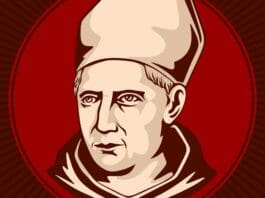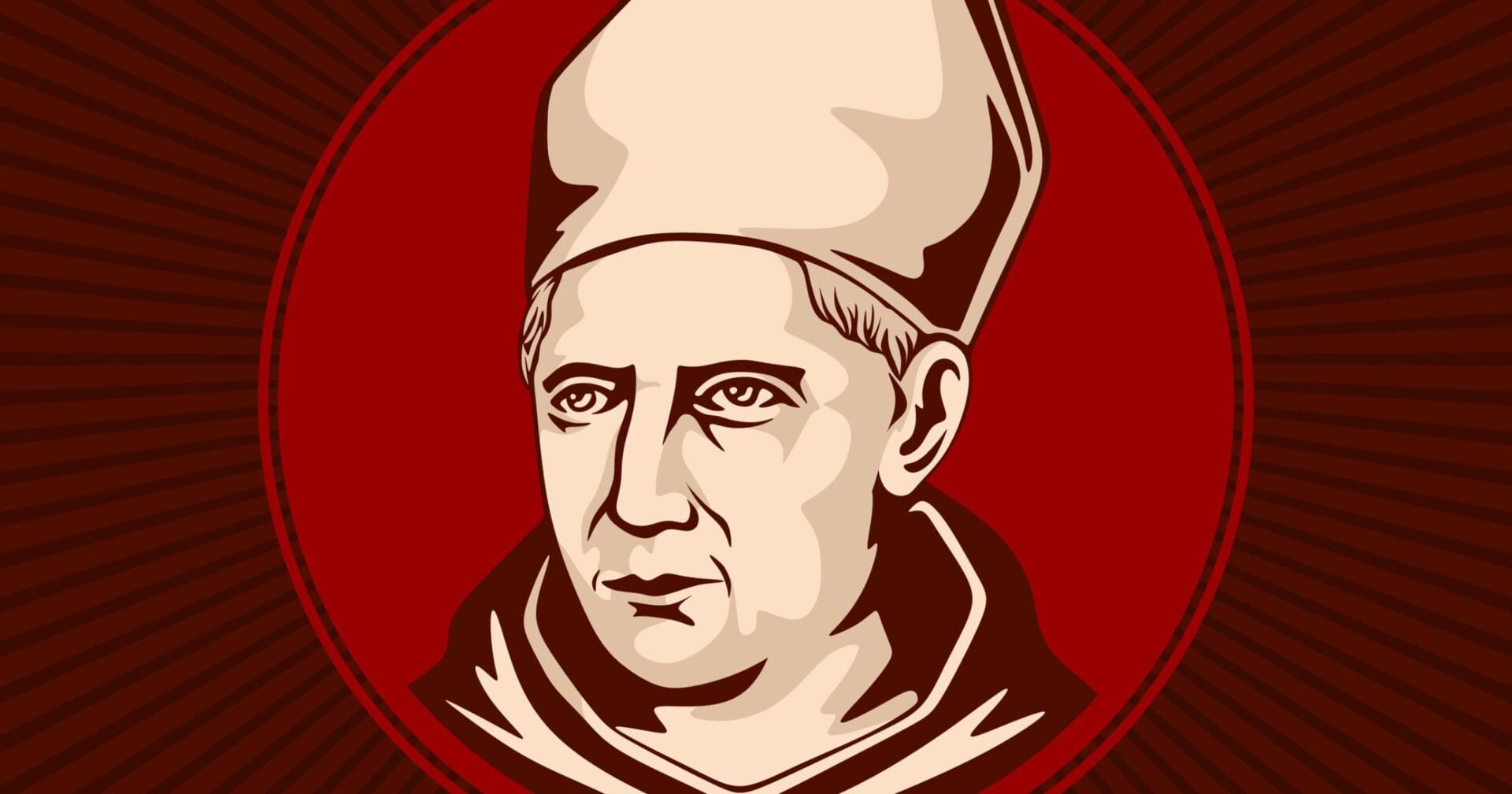
Saint Albert, also known as Albertus Magnus, is renowned as the patron saint of scientists in the Roman Catholic tradition, and is celebrated for his immense contributions as a German philosopher and theologian during the Middle Ages. His work is particularly notable for being the first to harmonize the philosophy of Aristotle with Christian theology, earning him the unique title of “The Universal Doctor” and recognition as a Doctor of the Church.
Born in either 1205 or 1206 in Lauingen, Swabia, Albert was the eldest son of the Count of Bollstädt. The specifics of his early education remain unclear, but it is known that he was sent to the University of Padua for his higher studies, a decision influenced by either his uncle’s residence in Padua or the city’s reputation for liberal arts, a field that greatly interested young Albert.
In 1223, Albert joined the Order of St. Dominic, inspired by the preaching of Blessed Jordan of Saxony. The details of his subsequent academic journey, whether at Padua, Bologna, Paris, or Cologne, remain uncertain. However, he later taught theology in various cities including Hildesheim, Freiburg, Ratisbon, Strasburg, and Cologne. It was in Cologne, while interpreting Peter Lombard’s “Book of the Sentences,” that he was summoned to Paris in 1245 to receive his Doctor’s degree in theology.
Albert’s teaching career in Cologne and Paris was distinguished by having St. Thomas Aquinas among his students. Recognizing Aquinas’s genius, Albert predicted his future greatness. Aquinas accompanied Albert to Paris in 1245 and later to the Studium Generale of Cologne in 1248, where Albert served as Regent.
In 1254, Albert became the Provincial of the German Dominican Order. He traveled to Rome in 1256 to defend the Mendicant Orders against criticisms, and during his time in Rome, he also served as the Master of the Sacred Palace. He resigned his provincial office in 1257 to focus on study and teaching. At the Dominican General Chapter in 1250, alongside St. Thomas Aquinas and Peter of Tarentasia, Albert helped establish guidelines for studies and graduation in the Order.
Albert’s tenure as Bishop of Ratisbon began in 1260 but was brief; he resigned in 1262 to return to teaching in Cologne. In 1270, he supported St. Thomas in opposing the Averroists with a treatise against the Arabian commentator Averroes. Albert was also a participant in the Council of Lyons in 1274.
The death of St. Thomas in 1274 deeply affected Albert, who mourned the loss of his esteemed pupil. In 1277, he defended St. Thomas’s writings in Paris against accusations of being too aligned with non-Christian philosophers. In his later years, Albert’s health and memory declined, and he passed away after a life marked by intellectual rigor and spiritual devotion.
Albert was beatified in 1622 by Pope Gregory XV and canonized in 1931. His feast day is celebrated on November 15th. His legacy remains influential in the realms of philosophy, theology, and the relationship between faith and reason.
Photo credit: Bibleboxone / Shutterstock.com
The post Saint Albert the Great appeared first on uCatholic.
Daily Reading
Feast of Saint Stephen, first martyr
Reading 1 Acts 6:8-10; 7:54-59 Stephen, filled with grace and power,was working great wonders and signs among the people.Certain members of the so-called Synagogue of Freedmen,Cyrenians, and Alexandrians,and people from…
Daily Meditation
Joy in the Midst of Sorrow
Click here for daily readings It’s always been odd to me to have a feast of the first martyr the day after Christmas. Yes, as Christians, we know difficult things…




